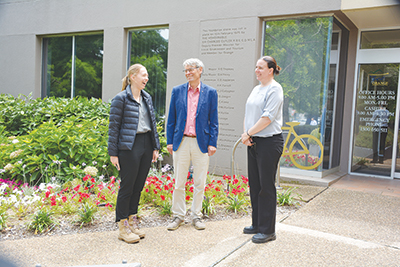A partnership between Orange City Council, New South Wales, and the University of Sydney has the potential to improve the quality of the effluent released from the city’s sewage treatment plant.
University of Sydney engineering honours student, Claudia Jerogin is conducting a six-month research project at Council as part of the university’s Major Industry Project Placement Scholarship scheme (MIPPS) which places students with ‘industry partners’ who have a problem they need solving.
“The university has a fantastic program where you can go and do a research project with an industry partner, instead of in a lab.
“I really wanted to do that because I wanted to make sure the research I was doing was actually making a difference.”
The Chemical and Biomolecular Engineering student will attempt to lower the nitrogen level in the city’s effluent using a process called carbon dosing.
“The waste water coming out of the plant must meet a certain level of nitrogen. Too much can have a negative impact on the environment and possibly even cause algal blooms,” Jerogin explained.
Orange City Council Mayor, Reg Kidd welcomed the partnership and looked forward to seeing the results of the project.
“I’m pleased Council’s water treatment team is working with Claudia in this initiative. It’s a great opportunity to learn from her research while helping her kick-start her career.
“Anything we can do to improve our processes and reduce our potential impact on the environment is worth investing in.”
The method of carbon dosing involves adding two sugars (sucrose and glycerol) during the treatment process to speed up reactions in the bacteria that cause nitrogen to be removed from the wastewater.
“Some people call it giving the bacteria a sugar high,” Jerogin said.
A more common approach uses alcohols such as methanol and ethanol, which are highly flammable and require a lot of safety protocols.
“Sucrose and glycerol, they’re food-grade sugars, they’re not going to cause any harm if they’re spilled or there are issues with operational handling.”
At the completion of the project Jerogin will provide a report to Council detailing the results of her research, and present recommendations or avenues for further research.
“Ultimately we do want a long-term solution because this is quite a pressing
issue,” she said.

















